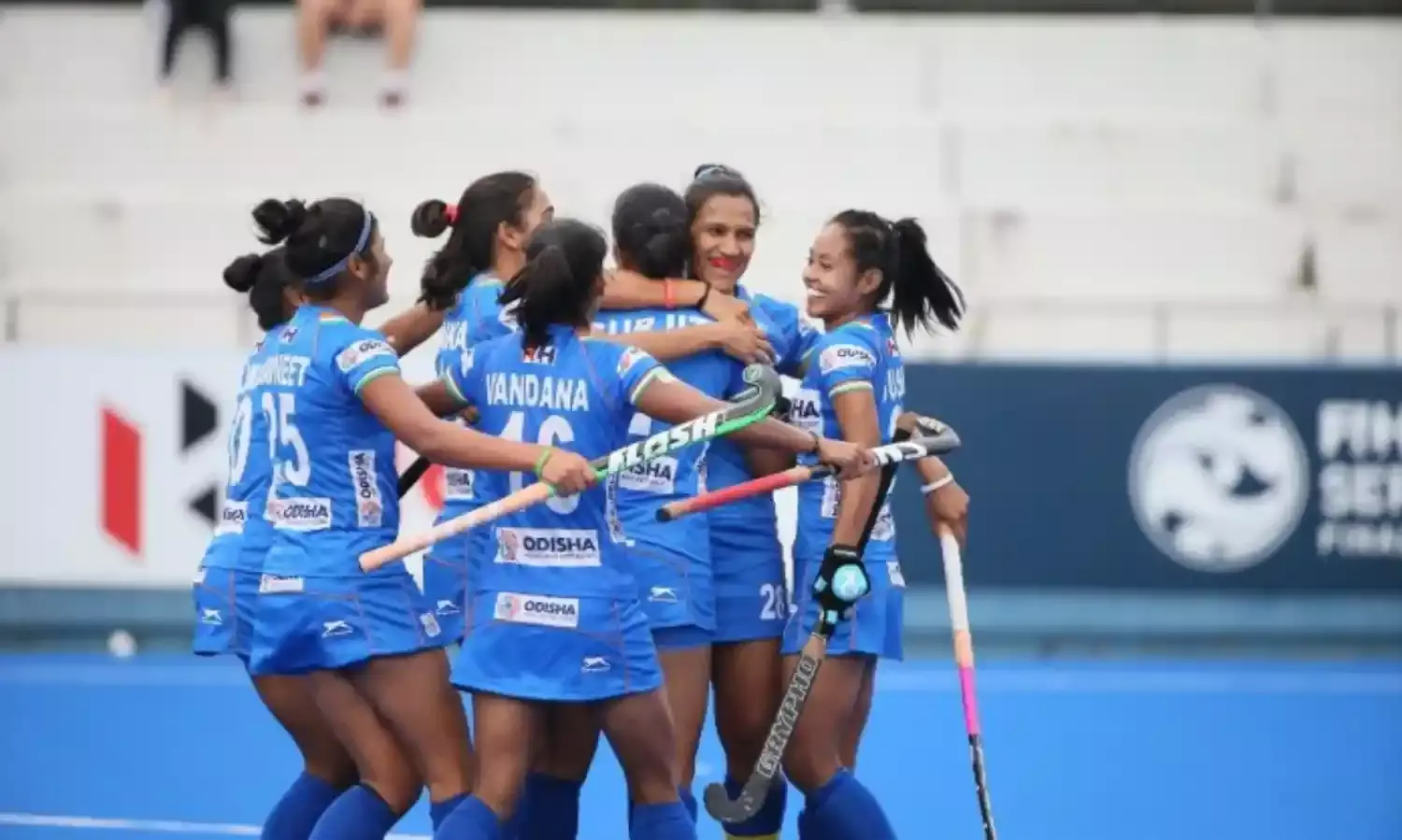Reporting from the field: the Olympics Hockey Qualifiers
India's recent performance has been encouraging.

Ahead of the Olympics hockey qualifiers, Bhubaneswar is efficient and workmanlike. Having established itself as a hockey hub, it relies on quiet preparation rather than aggressive branding to strengthen its portfolio. No longer is there the noise and celebratory air of last year’s World Cup. Spectators are fuzzy about this tournament’s huge importance, because it has only two foreign teams.
For the Odisha government, the preparation is part of a process. “We are delighted to be hosting the Hockey Olympic Qualifiers. This tournament marks a continuation of our journey in the quest of making Bhubaneswar and Odisha the sports capital of India, and it is also in alignment with the state’s support for hockey,” says Vishal Dev, secretary in the Department of Sports and Youth Services.
With regard to the women’s qualifiers, relying on field study yields an accurate picture of the relative strengths of India and the U.S. My conversations with the Indian and U.S. team management, and with Indian women’s team players, suggest there is wariness about sharing information that might disrupt team strategy.
“We feel confident with what we’ve done,” is all that U.S. women’s team manager Maren Langford said, joined by assistant coach David Williamson in stating, “We had the Pro League, but in terms of caps we are very inexperienced.” Such modesty could disarm a less than vigilant opposition. Neither will make a prediction about the outcome.
“Although the Indians have not played at the elite level, they have more caps (than us). I lost eight players from the (2018) World Cup. The players are young, but keen to learn,” asserts U.S. coach Janneke Schopman. The U.S. players may have lesser caps than the Indians, but, unlike the Indians, they have played the Olympics and World Cup multiple times, including the Pro League, most recently.
The Indians do not play elite teams on a regular basis. Thus, a clear sense emerges that rankings don’t matter. The U.S. (WR: 13) begins as a favourite against India (WR: 9), mainly because of its overall record against India (29 games played, 16 won by the U.S., 4 by India, and 9 games drawn). Nor has India been tested in knockout games in home conditions. “In Odisha the spectators are very good,” asserts Indian player Monika Malik. But the noise, while actually interfering with communication among the U.S. players, might also unnerve the Indians.
From conversations with Malik, Navneet Kaur and Navjot Kaur, it seems the Indian team has ticked the boxes on match strategy. “We need to play at our best. We are in competition not with the opposition but with ourselves.We performed well in Great Britain (during the recent tour). We are well-prepared to show our game.” asserts Malik. Navjot Kaur said, “We are relaxed. The U.S. is a very strong team. We will play to our strengths.” Navneet Kaur added, “The biggest thing is we are playing in India for the first time. It is a different feeling.”
These players are not to be hustled by the U.S. counterparts. “Earlier, we heard the U.S. team is physically very strong, and they push opponents. We’re getting stronger physically. We also feel like we have good muscles. Our confidence level has gone up. Hockey is a physical game. We have to be ready for this,” Malik said. Having prepared in every possible way, these players are relaxed and jocular.
India’s recent performance has been encouraging. Earlier in November, winning a game, drawing two, and coming agonisingly close to winning another in a 5-match away series against Olympic champions Great Britain was no mean feat. India fielded its best team. Had Britain fielded its A team, rather than a developmental squad, it is hard to say how the series would have ended. But focus on development rather than outcomes, it helps that the U.S. plays like Great Britain.
Ignore rankings, the U.S. has a better recent record. It stood 5th in the 2016 Rio Olympics, and, in 2017, won a bronze medal in the FIH World League semi finals. India lacks a comparable CV. Yet, the U.S. is not taking India lightly. “India is an experienced and good team,” U.S. chief coach Janneke Schopman says. “They are good in playing the counter, are fast to go forward, have a solid defense and have a very good penalty corner with one of the best drag flickers in the world.” Who knows what will happen?
Jitendra Nath Misra is a former ambassador. He advises the government of Odisha on sports and teaches at Jamia Millia Islamia University.



